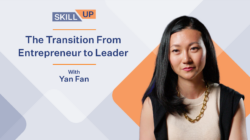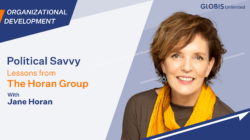Leading High Performing Remote Teams
How can leaders ensure that performance remains high in remote or hybrid-work environments?
Content Marketing
In this course, you’ll learn how compelling blogs, videos, podcasts, and other media can reach customers and drive sales. You’ll also learn steps for creating an effective content marketing plan, and some important ways to measure its impact and success.
Content marketing is a essential digital marketing strategy for companies looking to provide relevant and useful information to support your community and attract new customers.
Get started on your content marketing journey today.
Sustainable Innovation in Times of Disruption: Choices for a Better Society
There are opportunities for progress all around us. The key is to innovate on these opportunities sustainably.
To help identify most effective path forward, you'll need to gain a global perspective to these challenges in an open discussion. How can Japan and the world take action to create a more sustainable, innovative world? Where do you fit in?
It's time to find out.
Social Media & Digital Communications: Impact on Global Public Opinion
Social and digital media have dominated the communications industry for decades. But it's no secret that social media has the power to sway public opinion, and the way in which many companies use these platforms could be seen as manipulative.
What do companies need to be aware of when utilizing social and digital media? How can these mediums be used to better communicate strategically with the world?
Discover what top media and communications experts have to say.
CAGE Distance Framework
Want to expand overseas? The CAGE distance framework can help ensure you're constructing a solid global strategy in four areas: cultural, administrative, economic, and geographic. Learn how to leverage useful differences between countries, identify potential obstacles, and achieve global business success.
Servant Leadership
There's more to leadership than driving a team to profit. In fact, there's a word for looking beyond self-interest to prioritize individual growth: servant leadership. Try this course for a quick breakdown of what that is, how it works, and how it can lead to organizational success.
Strategy: Creating Value Inside Your Company
Have you ever wondered why certain companies are more successful than others? The answer is strategy: internal processes that control costs, allocate resources, and create value. This course from GLOBIS Unlimited can give you the tools you need for that strategic edge.
Strategy: Understanding the External Environment
To plan strategy on any level, you need to understand your company's external environment. In fact, your level of understanding can impact hiring, budgeting, marketing, or nearly any other part of the business world. Want to learn how to do all that? This course from GLOBIS Unlimited is the perfect first step!
Using Japanese Values to Thrive in Global Business
Japanese companies have unique cultural, communication, and operational challenges. But they also have values that have led to remarkable longevity. Check out this seminar to hear how these values help earn trust from overseas head offices and develop employees.
Marketing: Reaching Your Target
Every company works hard to get its products into the hands of customers. Are you doing everything you can to compete? In this course, you’ll find a winning formula to turn a product idea into real sales. Follow along through the fundamentals of the marketing mix and see how companies successfully bring products to market.
Basic Accounting: Financial Analysis
Want to compare your performance vs. a competitor? Or evaluate a potential vendor? Then you'll need to conduct a financial analysis. This course will teach you how to use three financial statements and evaluate financial performance in terms of profitability, efficiency, soundness, growth, and overall strength.
Career Anchors
What drives you to be good at your job?
Career anchors are based on your values, desires, motivations, and abilities. They are the immovable parts of your professional self-image that guide you throughout your career journey.
Try this short GLOBIS Unlimited course to identify which of the eight career anchors is yours!
Leadership with Passion through Kokorozashi
The key ingredient to success? Passion.
Finding your kokorozashi will unify your passions and skills to create positive change in society. This GLOBIS Unlimited course will help you develop the values and lifelong goals you need to become a strong, passion-driven leader.
Born in Belfast, Ireland amidst the period known as “The Troubles,” Rick Grehan was always passionate about sticking up for what’s right. As he grew older and pursued a career in advertising, he was forced to confront a moral-dilemma between a life of activism and a life in the boardroom.
In his GLOBIS Unlimited course, Grehan shares his experiences navigating these ethical minefields as well as how he managed to incorporate corporate social responsibility into his work, ultimately leading me to a deeper understanding of the challenges faced by NGOs and activists looking to secure funding.
Below is an excerpt of his insights on the importance of balancing your personal morals with your professional career.
Grehan: I’m from Belfast, Northern Ireland, and I was born in 1969, and that just happened to be the beginning of the Irish troubles. I grew up in a kind of war zone, and so a lot of political activism was happening between the UK and Ireland. My aunt won a Nobel Peace Prize and my father was one of the heads of the civil rights movement, so growing up I was a baby activist. I was carrying placards before I could read them and [always] wanted peace and political stability.
After all of that, I studied graphic design and started working in advertising in London. I was working in corporate identity for one year. And then I moved to South Africa to work in big advertising agencies. It was there that I had experienced a bit of an existential crisis.
I was a peace activist and political activist in my private time, but at work I was collaborating with some of the same brands that I was boycotting. I was working with one of the biggest coffee companies in the world. But in my personal life I was boycotting them because of the pressure they were putting on the Ethiopian government.
And at the same time, in my daytime job, I was helping [the coffee company] with their branding. I thought this was kind of shouganai (unable to be changed). You have your daytime work and that’s how you make a living. And then in your personal life you can make some difference. Eventually it got to be too much, and I quit advertising.
Eventually I had my own advertising agency, I sold it, and then I bought a 4×4, and I drove from Cape Town to Cairo.
I was raising money for an AIDS orphanage NGO at the time. And this was my first kind of experience of working for a good cause. I knew that I was good at selling things, so I thought that this would be easy.
But I was shocked because as soon as I went out and started speaking to my old clients and trying to get sponsorship, they just kind of backed off and weren’t interested and kind of looked down at me a little bit, like I was kind of begging for money.
So I was very perplexed by this and the fact that people people find it difficult to give to charity. I finally understood why NGOs find it very difficult to survive.
To watch the rest of this course, Sustainable Business Models with Rick Grehan, visit GLOBIS Unlimited.


